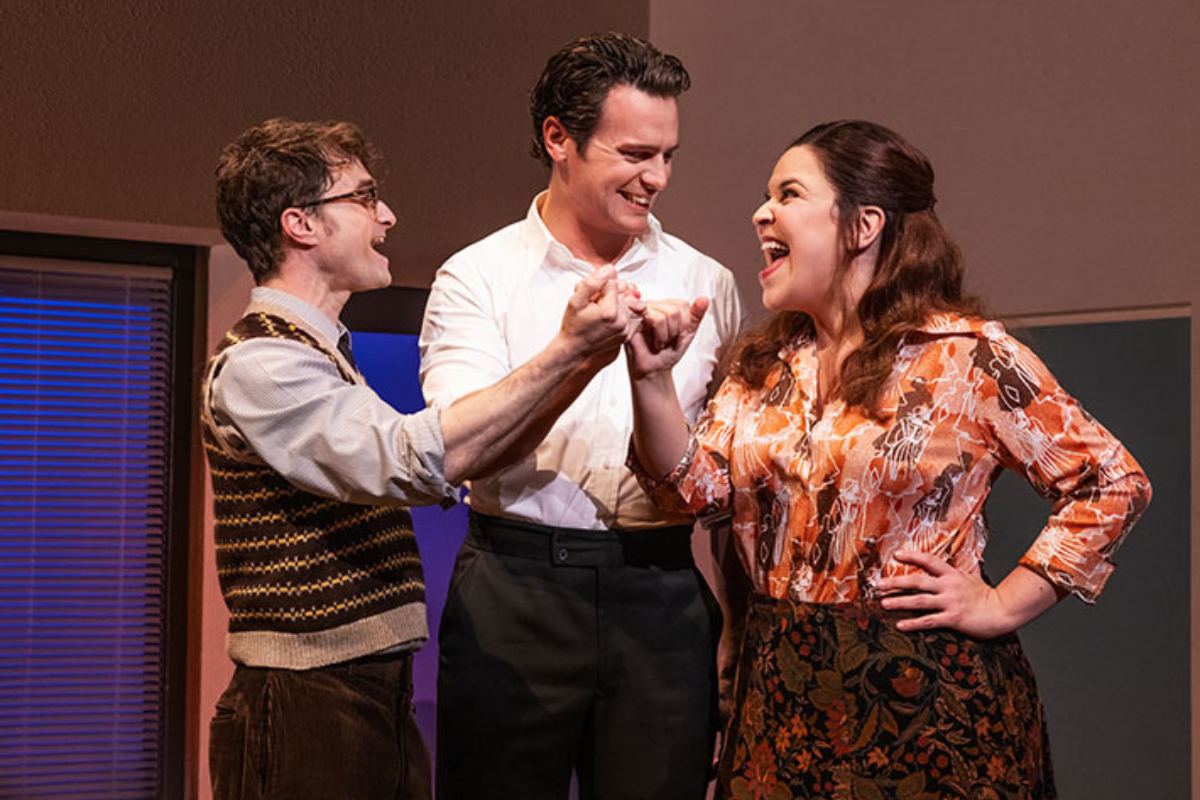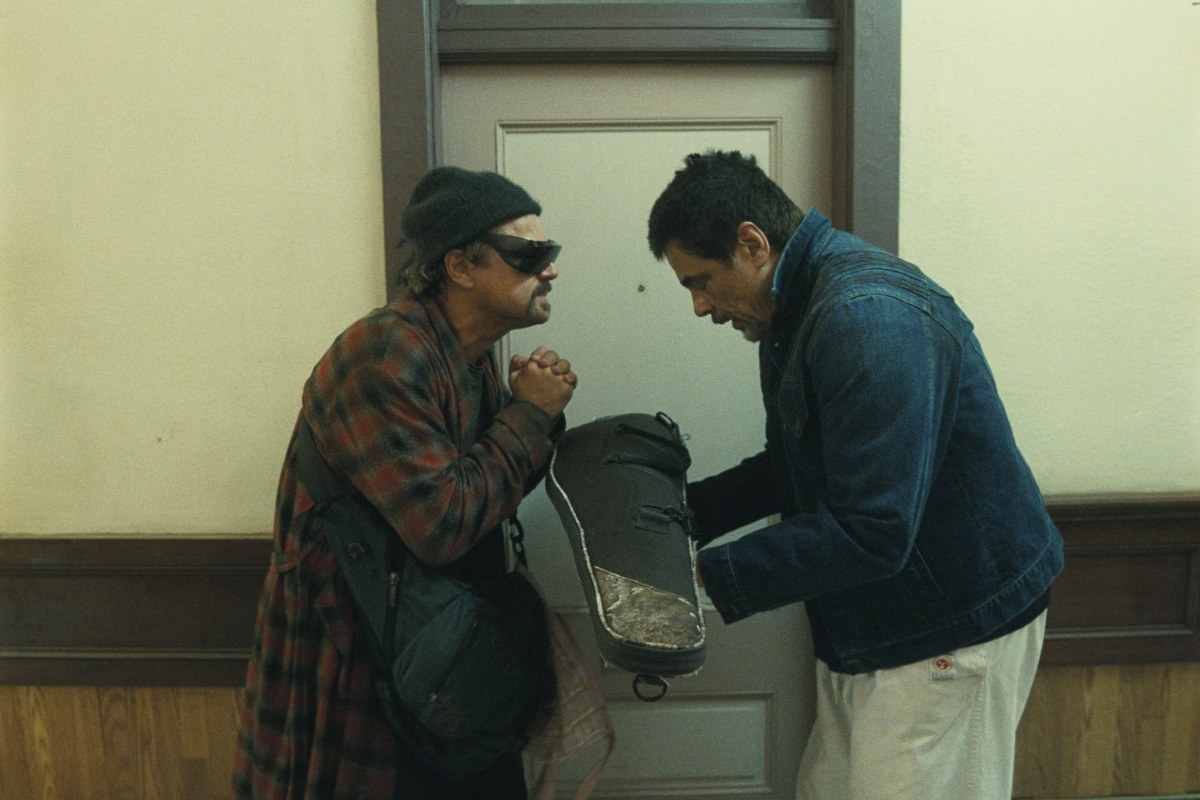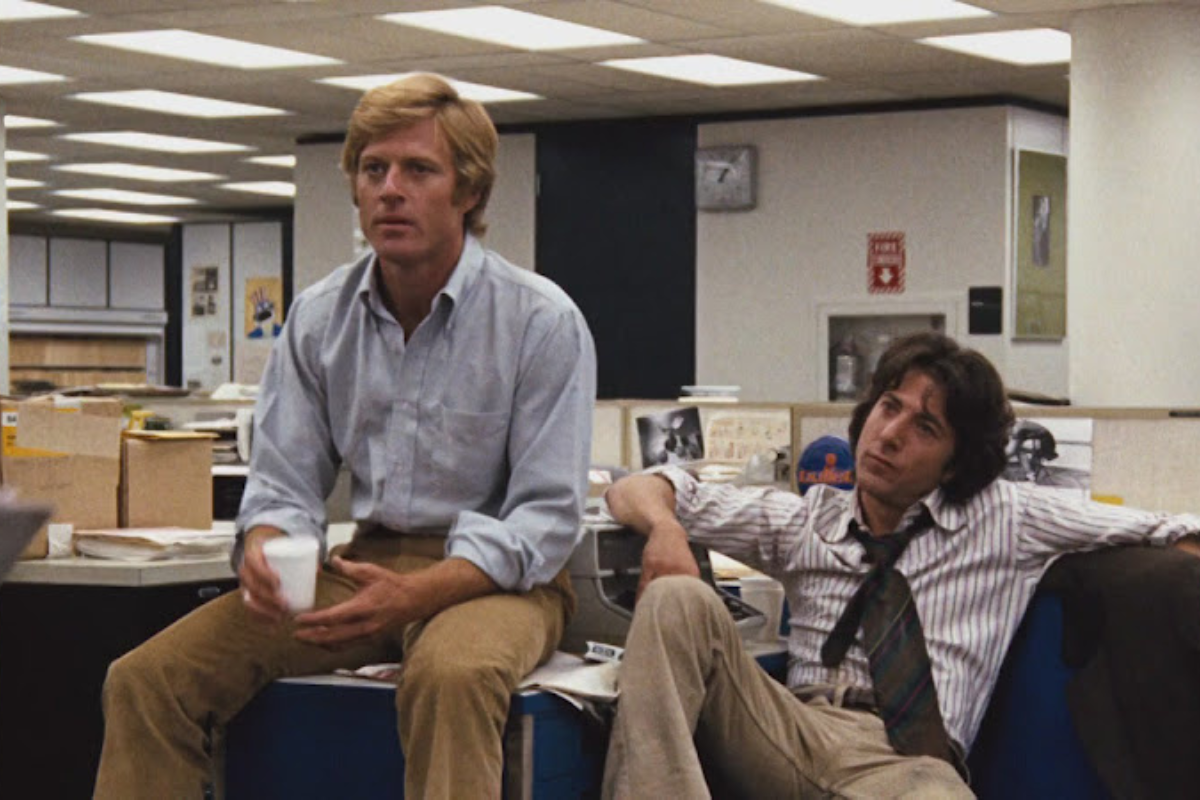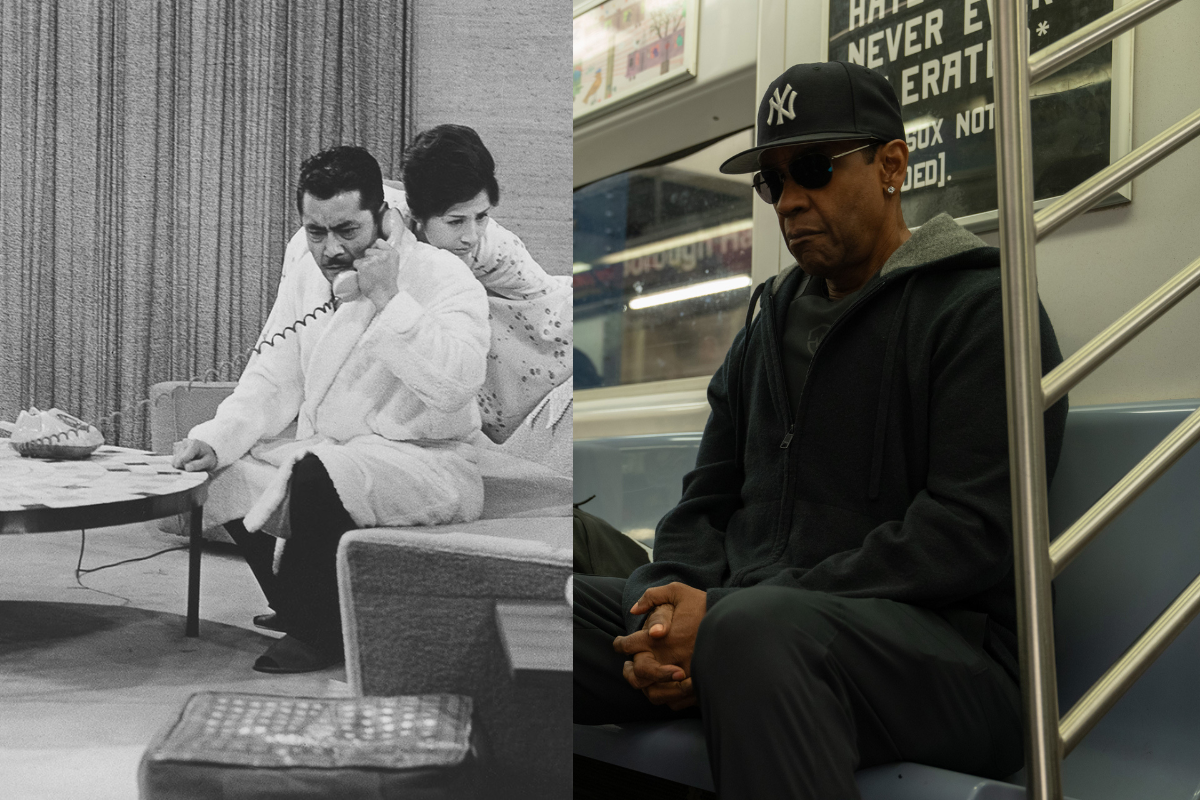UNDERSTANDING SCREENWRITING: Families
Tom is writing about two films and one television series that deal with families: ‘May December,’ ‘American Fiction,’ and ‘Fargo,’ but first an important announcement.
This Announcement is Both Important and Significant.
You can sort out for yourselves why this is both important and significant.
Three years ago I reviewed the 2000 Pixar film Soul. You can read the review here. I said it was the best Pixar film in a decade.
I also pointed out that it was designed beautifully for a big theatre screen. I then mentioned you could not at that time see it in a theatre. Disney was at that time in the mind fog that caused people in Hollywood to assume that streaming was the way, and the only way, of the future. Barbenheimer pretty much dropped an atomic bomb on that nonsense last summer.
So, in January Disney decided to release Pixar and two other animated features that they only had streamed into limited theatrical release. I do not know at this time if they are keeping them only in limited release, but if you can find Soul in a real movie theatre, go see it the way it was meant to be seen.
I was in Lexington, Kentucky, in January, and I had a chance to see Soul on a big screen one Monday afternoon when, as appears to be a trend (see below), it was playing once a day. It is, as I thought, just as impressive on a big screen if not more so.
This theatrical release is limited with little advertising, which means Disney will lose more money on it. As indicated by this:
I was the only person in the theatre at that showing.
And Speaking of Stupid Streaming Companies…
May December (2003. Screenplay by Samy Burch, story by Samy Burch & Alex Mechanik, 117 minutes)
May December is a Netflix production. The company realizes they have to release their films in theatres to qualify for Academy Award nominations and awards. And like all the other companies in the business, they are willing to grovel for awards. Especially with a film starring Julianne Moore and Natalie Portman (the latter of whom is also one of the producers).
So in December Netflix got this film into several theatres. It is a common practice for studios to give a film a one-week special engagement in December, then bring it back for a full run after the first of the year. What Netflix apparently decided to do was extend the one or two-week run into a full run…in December. That’s the one month that theatres are hard to come by since they are full up with Christmas goodies.
So Netflix in January only had May December in three theatres in Los Angeles. One is one Netflix owns, and the other two are art houses around town. And all of them were only screening the film once a day. At different times on different days. Good luck trying to figure out when and in what theatre you can see it.
Well, one day the repairman I had scheduled finished up early and I could get to a theatre near me that was playing it.
So after the trailers what happens? You remember that a few columns ago I complained that Aftersun (2022) started with a lot of logos of all the production companies involved, followed by a listing of all the companies in the main titles, which did not get the movie off to a good start.
May December has the same logos and credits problem. I sincerely hope this is not a new trend, but I am afraid it is.
The film starts off relatively slowly. Elizabeth, an actress, comes to Savannah Georgia to meet with Gracie. Elizabeth gets to know Joe, her husband, and their children. Elizabeth is going to portray Gracie in a movie. Why?
Several years before Gracie, then in her thirties, had an affair with Joe, who was then twelve. After a variety of legal problems, Gracie and Joe got married when he became of legal age. And they are apparently living happily ever after.
You may recognize the bare bones of this story. It is inspired by the true-life story of Mary Kay Letourneau and Vili Falaau, which was a scandal in 1987 and again when they later got married. I say “inspired” because this is not a docu-drama. The focus is on the relationship of Elizabeth (Natalie Portman) and Gracie (Julianne Moore). Burch is a former casting director and has a real feel for actors and what they do, so that is the center of the film, but she does not dig as deeply into the characters as she should.
Part of the problem with the script is that Burch has retained more characters from the Letourneau story than she needs, including her children with Vili/Joe and her children from her first marriage. Very often we are not clear who is who, particularly among the children. Burch is not as precise as she should be in identifying who is who.
Burch’s writing is generally not as sharp as it should be to let us know what we need to know to follow the story and the characters. And sometimes we get scenes, like one on a roof with Joe and his eldest son, that does not help either move the story along or get us into the characters more deeply.
The character of Gracie is not as well drawn as it could be. Burch needs to get into her in more depth. Elizabeth is better drawn and Portman gives a terrific performance, especially when we are watching her watch Gracie. Moore and Portman have a nice scene where Moore’s Gracie applies her makeup to Elizabeth to make her look more like Gracie. Portman’s best scene is a monologue given straight to the camera in which she has become Gracie.
There is a big twist late in the film, but if you hadn’t guessed what it will by then, go back to Screenwriting 101. Think about the other twists you could use in its place.
And then there is another twist when Gracie’s eldest son from her first marriage tells Elizabeth a shocking truth. But then Burch does not do anything with it, except to have Gracie deny it to Elizabeth. Talk about not taking advantage of the materials you have to work with.
As you may guess, I was disappointed with the script and the film. Others have liked it better, I suspect because they like the idea of the film more than its execution. You can see what nominations in the script categories it has here.
I was so frustrated with the film when I left the theatre, I went home and watched Billy Wilder and I.A.L Diamond’s 1960 film The Apartment. It is a much better film, because the script is sharper. Billy and Izzy make it perfectly clear where we are and who is who all the way through the film. They have written great parts for Jack Lemmon, Shirley MacLaine, and Fred McMurray, the latter in one of the two truly despicable characters he played for Wilder. The writers give all the actors great scenes to play. You can’t ask for more than that.
Trailers: Can’t Live With Them, Can’t Live Without Them.
American Fiction (2023. Written by Cord Jefferson, based on the novel Erasure by Percival Everett, 117 minutes)
We have all seen trailers for movies that are irritatingly unlike the movies they are supposedly promoting. There are the comedy trailers that not only give away some of the jokes in the film, but all of the jokes. There are trailers made by men for macho movies that do not bother to show the women in the film. You may remember that a while back I (OK, it was my editor Sadie Dean who dug it up, as she does all the clips and illustrations for the column) had the trailer for After the Fox (1966) (you can see both my comments and the trailer here at the bottom of that column) where the trailer promoted it as a Peter Sellers movie when Victor Mature stole the film. You can come up with your own list.
I saw the trailer for American Fiction and thought it looked interesting and funny. The setup is that a Black professor, Thelonius ‘Monk’ Ellison, whose academic books have not sold, decides to write a parody of contemporary “Black” novels, with all the clichés: poverty, murder, cops killing Black people, abuse of women; fill in from your own list. His agent and the publisher he sends it to love it, and it becomes a best-seller, published under the pseudonym “Stagger E. Leigh” (if you don’t get that joke this movie is not for you). The trailer focuses mostly on the satire of the book publishing business, which provides great targets.
What the trailer does not show us is the other main storyline. Monk is given an unwanted leave of absence from his university because of writing the “N” word on his whiteboard in class, and a white girl complains to the faculty. He goes back to his home in Boston and we get his family story in a nice scene with his sister Lisa in which she handles the exposition we want to know in the amount we need to know. His mother Agnes is showing signs of Alzheimer’s and has to be moved into a care home which Monk cannot afford to pay for, at least not until the book advance and the movie sale begin to kick in. Monk gets involved with a divorcee Coraline, who lives across the street from Monk. And their longtime maid Lorraine falls in love and gets married to a local policeman.
The family stuff is good, helped by a terrific cast. Monk is played by the great Jeffrey Wright. Mostly we think of Wright as a dramatic actor, but here he has a wonderfully sly comic tone in the satirical scenes with the publishers and the movie producer as well. He transitions nicely from one to the other and makes it seem all of a whole character. His sister Lisa is played by the always wonderful Tracee Ellis Ross. She only has a few scenes in the beginning before Lisa goes out to sea, and we only get a glimpse of her later. Anges, the mother, is played by Leslie Uggams, who nicely catches the way Alzheimer’s patients keep people around them off balance. Erika Alexander as Coraline shows all the wonderful qualities you want in a girlfriend next door.
Together that cast makes the family scenes work very well, and I suspect the thinking on the part of Jefferson and Everett was that the family scenes are meant to show the reality of Black life. They do that, but as good as the writing and acting are, I kept wanting to go back to the satire. That may just be because I am a book author, but the book scenes are livelier and funnier. And truer to the trailer for the movie I came to see. I should mention that as far as I could tell, the packed house I saw the film in, the Wednesday after Christmas, laughed a lot and seemed to love the movie as much or more than I did.
A Nice Return to Fargoland.
Fargo (2023-2024. Created for television by Noah Hawley, based on the film Fargo [1996] written by Ethan Coen & Joel Coen. Multiple writers, 10 episodes, one hour each)
If you are a long-time reader of this column you know that I have liked a lot of its now five seasons. The first, back in 2014, had the killer twosome of Billy Bob Thornton and Martin Freeman and showed that Hawley could create a series set in the world of the movie Fargo. The second season was not quite as compelling as the first one because it did not have as compelling characters. The third season was a return to form, with Ewan McGregor as the Stussy brothers, as different as brothers can be. That season also included the wonderful character Nikki Swango played by the equally wonderful actress Mary Elizabeth Winstead.
The fourth season was a real letdown. Instead of being set in the Dakotas and Minnesota, it was set in the big city of Kansas City and dealt with a competition between a Black and Italian set of gangsters. It seemed the world of The Godfather rather than the world of Fargo. That season was in 2020 and we have had to wait four years for the fifth season. The show is definitely worth the wait and may be the best Fargo season of them all.
We are back in a small town in the upper middle west. Dot, a local housewife, is at a school board meeting that breaks out into a fight. We have no idea what the fight was about, and we know Hawley will either tell us or he won’t. He doesn’t. Dot gets arrested although she was just an innocent bystander. But she now has a police record, complete with a booking photo. This comes to the attention of Sheriff Roy Tillman of a neighboring county. He sends his henchmen to try to kidnap Dot. We have no idea why at this point, but we begin to suspect that Dot is not just a typical Midwestern housewife. She sets traps around her house that seem more sophisticated than you might expect.
At one point she cuts off the ear of Munch, a bizarre man who looks like something from a horror movie. Munch floats around the story and at one point gets a flashback of what we take to be Much several hundred years ago in Wales. But is it Munch in the flashbacks? I thought for a while it might be an earlier version of Tillman. Why? Because I would not put it past Hawley and his writers to pull the rug out from under us.
Dot is played by Juno Temple, late of Ted Lasso (2020-2024). Like the Irish actress Jessie Buckley, who developed a great Minnesota accent in season four, Temple, who is English, also has the Minnesota accent down pat. She is also an incredibly compelling actress, who does more with her eyes than any other ten actresses. We also believe she is a tough cookie.
And we know she is going to have to be tough to deal with Tillman. Tillman is one of those hyper-masculine law officers who assumes everything he does is legal and anything he does not like other people doing is illegal. He lives on a compound out in the country, and he has his own set of vigilantes with very high-grade weapons. And Dot was one of his earlier wives, the one he really loved, and he wants her back.
Tillman is played by Jon Hamm, about a hundred miles away from his Don Draper in Mad Men (2007-2915). I loved his Don Draper, but this may be an even more impressive performance.
In addition to Temple and Tillman, there is a great supporting cast, including Jennifer Jason Leigh as Dot’s rich-bitch mother-in-law. Her lawyer is played by David Foley, whom you may know best as one of the “Kids in the Hall” gang. Here he is playing a serious role with a slight comic edge. He also wears a blue eye patch, which baffled me until late in the season when you figure out why the filmmakers made it blue.
Dot winds up at Tillman’s compound as the FBI surround it. Tillman has called in his version of the Proud Boys. So at the end of Episode 9, we are expecting a big shootout in the final episode. Guns are fired, but it is not as big a shootout as you think it will be.
And Munch shows up at Dot’s house. Her daughter is fascinated by him. Her husband is as clueless about what is going on here as he is about everything. Munch, with more lines of dialogue than he has had in the rest of the show, explains he is a sin-eater. Dot gets him involved in making biscuits and convinces him he can eat to ingest good as well as evil. Stay through to the final closeup.
Learn more about the craft and business of screenwriting and television writing from The Writers Store!
Tom Stempel is a Professor Emeritus at Los Angeles City College, where he taught film history and screenwriting from 1971 to 2011. He has written six books on film, five of them about screen and television writing. You can learn more about his books here. His 2008 book Understanding Screenwriting: Learning from Good, Not-Quite-So- Good, and Bad Screenplays evolved into this column. The column first appeared in 2008 at the blog The House Next Door, then at Slant, and then Creative Screenwriting before it found its forever home at Script.
In the column he reviews movies and television from the standpoint of screenwriting. He looks at new movies, old movies, and television movies and shows, as well as writing occasional other items, such as appreciations of screenwriters who have passed away, plays based on films, books on screenwriting and screenwriters, and other sundries.
In September 2023 Tom Stempel was awarded the inaugural Lifetime Achievement in the Service of Screenwriting Research by the international organization the Screenwriting Research Network.







